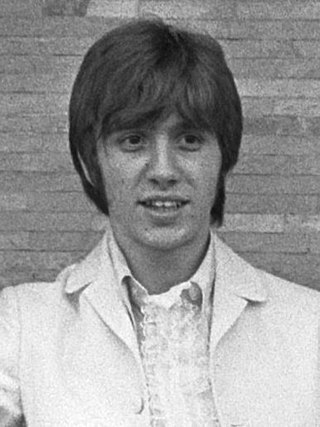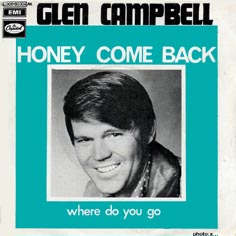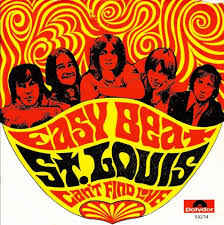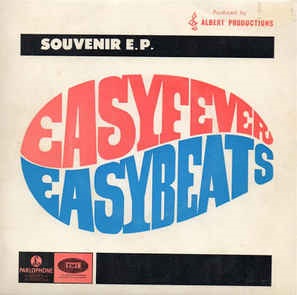Zager and Evans were an American rock-pop duo active during the late 1960s and early 1970s, comprising Denny Zager and Rick Evans. They are best known for their 1969 No. 1 hit single "In the Year 2525", which earned them one-hit wonder status.

The Easybeats were an Australian rock band who formed in Sydney in late 1964. They are best known for their 1966 hit single "Friday on My Mind", which is regarded as the first Australian rock song to achieve international success; Rolling Stone described it as "the first international victory for Oz rock". One of the most popular and successful bands in the country, they were one of the few Australian bands of their time to foreground their original material; their first album Easy (1965) was one of the earliest Australian rock albums featuring all original songs.

George Redburn Young was an Australian musician, songwriter and record producer. He was a founding member of the bands The Easybeats and Flash and the Pan, and was one-half of the songwriting and production duo Vanda & Young with his long-time musical collaborator Harry Vanda, with whom he co-wrote the international hits "Friday on My Mind" and "Love Is in the Air", the latter recorded by John Paul Young.

Stephen Carlton Wright was an Australian singer, songwriter, and musician. Called Australia's first international pop star, he is best known for being the lead singer of the Easybeats, who are widely regarded as the greatest Australian pop band of the 1960s.

"Can't Get Used to Losing You" is a song written by Jerome "Doc" Pomus and Mort Shuman, first made popular by Andy Williams in a 1963 record release, which was a number-two hit in both the US and the UK. Twenty years later, British band the Beat took a reggae re-arrangement to number three in the UK.

"This Guy's in Love with You" is a hit song written by Burt Bacharach and Hal David and released by Herb Alpert in May, 1968. Although known primarily for his trumpet playing as the leader of the Tijuana Brass, Alpert sang lead vocals on this solo recording, which was arranged by Bacharach. An earlier recording of the song by British singer Danny Williams with different lyrics, titled "That Guy's in Love", appeared on Williams' 1968 self-titled album.

Danny Diaz & The Checkmates were a Filipino rock band, based in Hong Kong in the 1960s.

Easy is the debut studio album by the Australian rock band the Easybeats, released on 23 September 1965.

The Best of The Easybeats + Pretty Girl is the first compilation album by The Easybeats featuring a selection of songs recorded by the group between 1965 and 1966. The album was originally released in Australia and New Zealand under the Parlophone label under the then current licensing arrangement by the band's production company Albert Productions.

"Honey Come Back" is a song written by Jimmy Webb, and recorded by the American country music artist Glen Campbell. It would become a major hit for him.

Good Friday is the fourth studio album by The Easybeats, released in May 1967. It was the first album released after the band signed an international recording deal with United Artists Records. The original UK album was released in May 1967. Although "Friday on My Mind" was a big single in the UK, the album failed to make the top 40.

"How Sweet It Is (To Be Loved by You)" is a song recorded by American soul singer Marvin Gaye from his fifth studio album of the same name (1965). It was written in 1964 by the Motown songwriting team of Holland–Dozier–Holland, and produced by Brian Holland and Lamont Dozier. The song title was inspired by one of the actor and comedian Jackie Gleason's signature phrases, "How Sweet It Is!"
Diamond Records was a record label for Hong Kong and the far East. It featured a good amount of Hong Kong's most popular recording acts and attractions in its catalogue.

"For My Woman" is a song by Australian rock band the Easybeats, written by singer Stevie Wright and guitarist George Young. The Easybeats had formed in Sydney in 1964, with a sound inspired by the Pretty Things and the Rolling Stones. After signing with their manager Mike Vaughan, he introduced the band to producer and businessman Ted Albert, who liked them enough to sign with his company Albert Productions in December 1964. The song was recorded in January 1965 at the 2UW Theatre in Sydney as a demo together with three other songs.

"Peculiar Hole in the Sky" is a song written by Harry Vanda and George Young. It was originally recorded by the Australian rock group the Easybeats in 1967, but left unreleased until 1969. The song would later be given to Australian rock group, The Valentines, which included singer Bon Scott, who would later join George Young's brothers Malcolm Young and Angus Young in AC/DC. The Valentines version would be released in August 1968.

"St. Louis" is a song by Australian rock group the Easybeats, which was released in June 1969. It was co-written by its members Harry Vanda and George Young and recorded as their first single after signing to Polydor Records.

"Come and See Her" is a song written by Stevie Wright and George Young. It was released as the sixth single for their Australian rock group the Easybeats in April 1966, which reached No. 3 on the Australian charts. It was the group's debut single in the United Kingdom, issued on the United Artists Records in July.

Easyfever by Australian rock and roll group the Easybeats was their fourth official extended play. It was issued to coincide with the band's departure for the United Kingdom. It appeared in August 1966 and reached number one on the Australian singles charts, something that had only been achieved once before by an EP. The songs on the EP did not appear on any of the Easybeats' official studio albums, however, they were included as bonus tracks on the 1992 CD reissue of their It's 2 Easy album.

"Sad and Lonely and Blue" is a song written by Stevie Wright and George Young, recorded by their band the Easybeats in 1965. The song was written in response to the group being labelled as "pop musicians" from their previous singles "She's So Fine" and Wedding Ring" along with their debut album Easy. The song is based around a 12-string guitar riff played by guitarist Harry Vanda and sees influences in both British rhythm and blues and jangle pop. Released as a single on 4 November 1965, it was a chart failure compared to their previous releases, only reaching number 21 on the Kent Music Report.
Trend Records was an English Record label which existed from the late 1960s until the early 1970s. It issued recordings by such notable artists and personalities as Consortium, The Foundations, Audrey Hall, Marcus Lipton, Julie Stevens, Warm Dust and Colin Young.

















